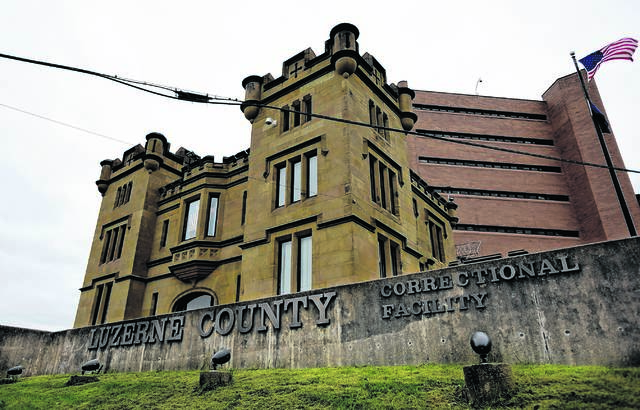Reprinted from the Times Leader
Luzerne County Court of Common Pleas President Judge Michael T. Vough said Tuesday no violent criminals will be released from the county prison due to concerns about the coronavirus.
“We’re not opening up the floodgates, the prison doors,” Vough said.
Vough estimated approximately 60 to 70 inmates with low-level misdemeanor offenses have been released, including some incarcerated for nonpayment of child support and minor drug possession.
Those owing child support can’t continue working if they remain incarcerated because the work release program has been suspended due to the pandemic, he said. Releasing them allows them to work to pay off their child support debt, which is not forgiven, the president judge said.
Other released inmates have served sufficient time and met additional conditions to qualify for parole or the reentry program, which means they will continue to be monitored by county parole officers or through the day reporting center, Vough said. Some released inmates also had been lodged on high bails that have been reduced based on a review of their pending charges.
The court initiative to review individual releases requested by attorneys was prompted by the need to proactively address space needs in the county prison system due to the coronavirus, Vough said.

By moving out some low-level offenders, the prison was able to carve out three new spaces: one for existing inmates exhibiting symptoms warranting them to be quarantined and the other two for incoming male and female inmates to remain under observation for up to 14 days to ensure they don’t have high temperatures or other flu-like symptoms before they are released into the general population, according to Vough and the county administration.
“We saw an issue that could be disastrous,” Vough said, referring to a lack of space for those who may be sick, particularly new arrivals. “There are close quarters there, and it’s a difficult situation to have social distancing.”
Judges assigned to these cases individually reviewed each one before releasing an inmate and conducted hearings by videoconferencing in compliance with pandemic protocol, he said.
“A lot of release requests were not approved by judges,” Vough added.
Depending on the offense level and other factors, inmates are lodged at the Water Street prison or nearby minimum offenders building, both in Wilkes-Barre.
County Correctional Services Division Head Mark Rockovich already had stopped inmates visits and restricted outdoor yard time due to the coronavirus.
Temperature readings are now obtained for all employees and inmates entering the prison system in addition to stepped-up monitoring of existing inmate temperatures, Rockovich said. Other precautions have been taken to reduce the unavoidable risk that an infected worker with no symptoms could unknowingly spread the coronavirus to colleagues and inmates, but he said prison correctional officers and other staff don’t have the option to work remotely or close operations.
County Councilman Walter Griffith sent county Manager C. David Pedri an email Tuesday expressing concerns about the releasing of inmates, but he said in a follow-up call he was more reassured after learning court officials are not granting release of violent offenders as requested by some attorneys.
Griffith said the ideal situation for the space concern would be a separate temporary facility to house incoming inmates, similar to the state’s use of the State Correctional Institution (SCI) at Retreat in Newport Township. However, Griffith said that option may be unattainable due to difficulties finding such an available facility with cells and the additional cost to rent and staff it.
The county’s minimal offender building has a dormitory-style setting with no cells and already is housing approximately 145 inmates, officials said. Around 448 inmates are incarcerated at the prison.
